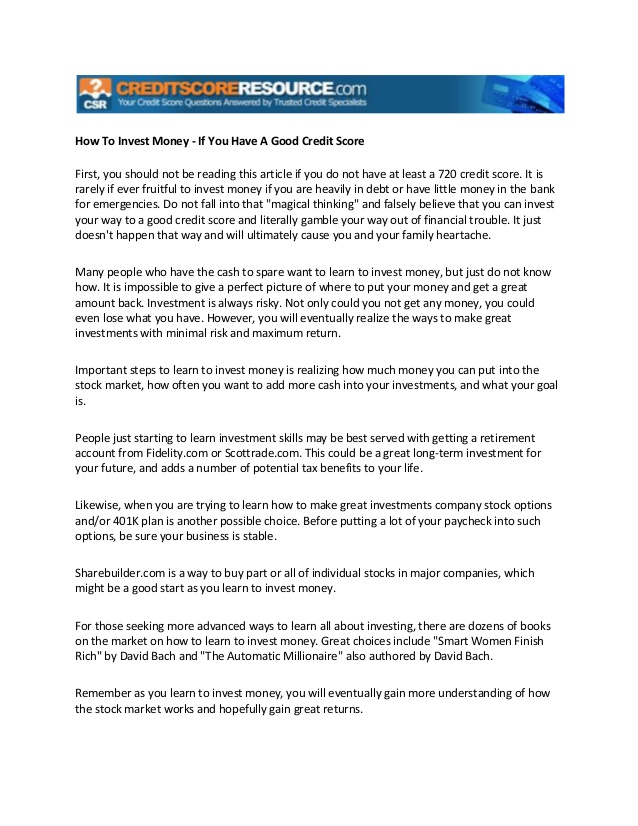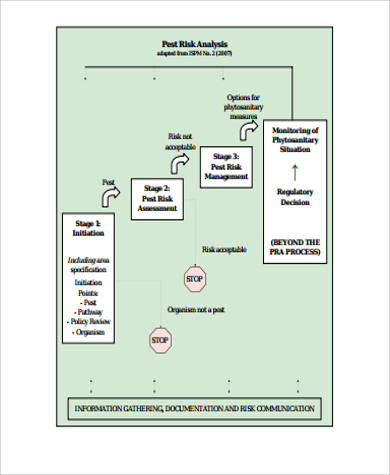
The insurance company may want to avail itself of the expertise of a reinsurer, or the reinsurer’s ability to set an appropriate premium, in regard to a specific (specialised) risk. The reinsurer will also wish to apply this expertise to the underwriting in order to protect their own interests. The insurance company may be motivated by arbitrage in purchasing reinsurance coverage at a lower rate than they charge the insured for the underlying risk, whatever the class of insurance. A ceding commission is a fee that is paid by the ceding company to the reinsurer in exchange for assuming the risk. A type of reinsurance in which the ceding company and the reinsurer agree in advance to reinsure all or a specified portion of the business.
- Insurance companies are susceptible to sudden losses because of their extensive involvement with high-risk businesses.
- Reinsurance ceded is an insurance industry term that refers to the portion of risk that a primary insurer passes to another insurer.
- Nevertheless, reinsurers must be licensed as insurers in each state in which they do business.
- This fosters stability in claim payouts and caps indemnification costs.
- A type of reinsurance in which the ceding company and the reinsurer agree in advance to reinsure all or a specified portion of the business.
It is a high-level snapshot of an insurance company’s profitability. With a treaty reinsurance contract, the ceding company and the accepting company agree on a broad set of insurance transactions that are covered by reinsurance. Reinsurers that are not licensed in the U.S., often referred to as “alien” or offshore companies, must post 100% collateral to secure the transaction, unless they are a Certified Reinsurer or a Reciprocal Jurisdiction Reinsurer. An insurer that is not licensed or approved to accept reinsurance is an Unauthorized Reinsurer. Companies that are domiciled in Qualified Jurisdictions can become Certified Reinsurers after completing additional review by the states, and this status allows the reinsurers to reduce the collateral required.
Reinsurance Cession definition
This would make its results more predictable on a net basis (i.e. allowing for the reinsurance). This is usually one of the objectives of reinsurance arrangements for the insurance companies. With this approach, the reinsurer consents to take on a predetermined portion of any potential claims loss before the ceding firm is held accountable. Insurance companies are susceptible to sudden losses because of their extensive involvement with high-risk businesses. Reinsurer offers the ceding company a number of advantages, including reduced liability and protection from significant losses. By shifting all or a portion of the risk to the reinsurance business, the casting firm is better able to retain its solvency margin and increase its capacity for underwriting.

First, it may not have sufficient capital to prudently retain all of the business that it can sell. For example, it may only be able to offer a total of $100 million in coverage, but by reinsuring 75% of it, it can sell four times as much, and retain some of the profits on the additional business via the ceding commission. The main challenge for the reinsurance industry is, of course, the utter unpredictability of catastrophic events. The COVID-19 pandemic, for example, presents an unprecedented challenge to certain specialty reinsurers such as those in the business of protecting against losses in the travel industry and the convention business. Reinsurance contracts are negotiated on a case-by-case basis and have grown increasingly complex, according to Deloitte, a professional services advisory firm.
Proportional
All claims from cedant underlying policies incepting during the period of the reinsurance contract are covered even if they occur after the expiration date of the reinsurance contract. Any claims from cedant underlying policies incepting outside the period of the reinsurance contract are not covered even if they occur during the period of the reinsurance contract. The ceding company may seek a quota share arrangement for several reasons.
Ceding benefits insurance companies by hedging against undesired loss or exposure. One type of ceding is by transferring the risk of an individual policy. This might happen if a particular risk is not a part of the original policy and only by transferring it to another company can the policy be executed. Ceding insurance risks to another company is a way of lowering the possibility of a negative financial situation for an insurance company since some claims will now be paid by another company. Reinsurance ceded is an insurance industry term that refers to the portion of risk that a primary insurer passes to another insurer. This practice allows the primary insurer to limit the overall risk exposure that it takes on with its clients.
Examples of Ceded in a sentence
Excess of loss reinsurance can have three forms – “Per Risk XL” (Working XL), “Per Occurrence or Per Event XL” (Catastrophe or Cat XL), and “Aggregate XL”. Read on as we take a deeper look at everything to do with ceding companies. As for arbitrage and risk appetite, the latter are all about risk and price, about how well instance companies evaluate their risk.

Click here to extend your session to continue reading our licensed content, if not, you will be automatically logged off. Once you have viewed this piece of content, to ensure you can access the content most relevant to you, please confirm your territory. These materials were downloaded from PwC’s Viewpoint (viewpoint.pwc.com) under license.
The biggest names globally in reinsurance include Swiss Re Ltd., Berkshire Hathaway Inc., and Reinsurance Group of America Inc. Reinsurance is sometimes called “stop-loss insurance.” The practice allows an insurance company to put a cap on the maximum losses it may sustain in a worst-case scenario. A policy which covers all claims reported to an insurer within the policy period irrespective of when they occurred. Assume that ABC Insurance Company writes a property insurance policy with a face value of $1 million. ABC Insurance Company decides to cede $500,000 of the risk to XYZ Reinsurance Company. In other words, cession refers to the portion of insurance policies or portfolio which are transferred to a reinsurer.
Insurance Departments
A big portion is often ceded for a high price, while smaller portions are sometimes ceded for a lower price. Reinsurance has become more and more sophisticated thanks to actuarial studies and, admittedly, because of a strong sense of competition within the insurance and reinsurance industries.
- It is a high-level snapshot of an insurance company’s profitability.
- A type of reinsurance in which the ceding company and the reinsurer do not share losses in proportion to the amount of coverage provided.
- Risk managers monitor reinsurers’ financial ratings (S&P, A.M. Best, etc.) and aggregated exposures regularly.
- Ceding companies often choose their reinsurers with great care as they are exchanging insurance risk for credit risk.
- For example, an insurance company issues homeowners’ policies with limits of up to $500,000 and then buys catastrophe reinsurance of $22,000,000 in excess of $3,000,000.
PwC refers to the US member firm or one of its subsidiaries or affiliates, and may sometimes refer to the PwC network. This content is for general information purposes only, and should not be used as a substitute for consultation with professional advisors. Read on as we take a closer look at the ceding commission, and lay out the formula you’ll need to calculate it. It’s all about reinsurance ceded meaning risk and price, and about how well risk is evaluated.Although it may sound like an exaggeration, there is a battle between cession and retention driven by price and risk appetite. There are actuaries – or risk managers – who are adverse to risk on the one side, and more risk-friendly underwriters on the other. Cession evolves between these two philosophies, these two strategies.
By offloading some portion of the overall risks they underwrite, the insurance company reduces its overall risk and is able to keep premium costs lower for all of its clients. Insurance coverage is provided for losses occurring in the defined period. Reinsurance agreements could also use a sliding scale tied to the actual loss events to determine the ceding commission. Usually, there is a maximum and minimum commission rate included in this arrangement. As the loss ratio rises, the sliding commission fee will also rise.
Ceding companies protect insurers from the financial consequences of catastrophic events. A type of reinsurance in which the ceding company and the reinsurer do not share losses in proportion to the amount of coverage provided. It is the ratio of losses paid out to premiums paid in and is expressed as a percentage.

For example, the ceding insurance company may cede all of the risks for flood damage, and the accepting company may accept all flood damage risks in a particular geographic area such as a floodplain. Some reinsurance is handled by insurers internally—automobile insurance, for example—by diversifying the types of clients the company takes on. In other cases, such as liability insurance for a large international business, a specialty reinsurer may be necessary because diversification is not possible. With reinsurance, the insurer can issue policies with higher limits than would otherwise be allowed, thus being able to take on more risk because some of that risk is now transferred to the re-insurer.
Ceding in reinsurance refers to the transfer of risk from one insurance company to another. A ceding company limit is the maximum amount of risk that an insurance company is willing to transfer to another insurer. Reinsurance creates an opportunity for insurers and reinsurers to exchange profit at each other’s expense, based on the accuracy of the actuarial calculations which determine the price of the risk. Nevertheless, reinsurers must be licensed as insurers in each state in which they do business. They also must abide by the regulations and financial reporting requirements of each jurisdiction.
Sapiens ReinsuranceMaster Platform Named as “Luminary … – PR Newswire
Sapiens ReinsuranceMaster Platform Named as “Luminary ….
Posted: Mon, 31 Jul 2023 11:25:00 GMT [source]
If they issue a $200,000 policy, they would give (cede) half of the premiums and losses to the reinsurer (1 line each). The maximum automatic underwriting capacity of the cedant would be $1,000,000 in this example. Any policy larger than this would require facultative reinsurance. Under proportional reinsurance, one or more reinsurers take a stated percentage share of each policy that an insurer issues (“writes”).

